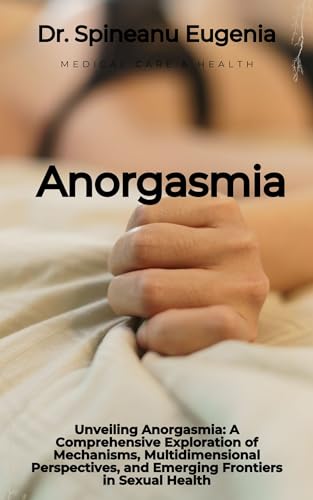Anorgasmia: Absence of Orgasms
Anorgasmia is a condition that affects a person’s ability to achieve orgasm despite sexual arousal. This happens regardless of the stimuli received, whether during sex with a partner or masturbation. This situation can be frustrating for those who suffer from it, because not only do they experience the absence of orgasm, but the lack of sexual desire can cause them to avoid having sexual relations, leading to creating distance and conflicts between the couple, which can trigger stress. , separations, depression, among other consequences derived from the distance between the two. It is important to understand that it is a common and treatable condition. Here we will talk a little about what anorgasmia is, its possible causes, effects, consequences, risk factors and we will answer some frequently asked questions that people usually have on this topic.
What is Anorgasmia?
Anorgasmia is defined as the persistent or recurrent inability to achieve orgasm, despite adequate sexual arousal. It is categorized as a sexual dysfunction and the causes that can influence it are both physical and psychological, manifesting in different ways, including the inability to reach climax at all (primary anorgasmia) or the difficulty in reaching orgasm in certain situations or with certain types. stimulation (secondary anorgasmia). Although it also affects men, studies indicate that it is more common among women, estimating an incidence of up to 40% of cases on the male spectrum.
Possible Causes of Anorgasmia
As we already know, the sexual response involves the body and mind working together in a complex way. It is imperative that both are on the same page so that the conditions are optimal to achieve orgasm.
Anorgasmia can have many causes including a variety of physical, psychological or relational factors. Some possible causes include:
- Physical Factors: Some chronic diseases such as diabetes, hypertension, hormonal disorders, pelvic surgeries or trauma could influence sexual response and contribute to anorgasmia. Also, pelvic floor disorders could be another known cause of the lack or absence of sexual desire and, in turn, anorgasmia.
- Psychological factors: The relationship between body and mind is very close, if there are circumstances that alter the psychological dynamics of a person, this can lead to consequences that in this case generate a type of conflict that triggers negative responses around sex. These present themselves as anxiety, stress and excess physical tension, depression, emotional conflicts or past traumas, all of which can interfere with a person’s ability to relax and enjoy the moment during sex.
- Relational Factors: The lack of experience and/or sexual education can generate a certain degree of anxiety due to anticipation, which leads to not enjoying the moment, making it difficult to reach climax. Couple conflicts, lack of communication and emotional intimacy often prevent the creation of the necessary bond so that the person can completely disinhibit themselves, causing mental and therefore physical resistance to be created.
Effects and Consequences of Anorgasmia
Anorgasmia can have various effects and consequences, both physically and emotionally. Here we mention some:
- Frustration and Stress: The inability to achieve orgasm can lead to feelings of frustration, stress, and low self-esteem. Because sexual gratification is very important because it generates bonds between the couple and increases levels of self-esteem, since they are stimuli that generate ecstasy and happiness. Lacking this gratification, the person may feel dissatisfied and insecure.
- Impact on the relationship: Anorgasmia can negatively affect sexual satisfaction and intimacy in a relationship. This is because sexual desire is not optimal or in most cases completely absent. Leading to creating gaps between the members of the couple, increasing the risks of separations, infidelities and arguments between both.
- Decreased Sexual Desire: Experiencing difficulties reaching orgasm, some people may experience a decrease in sexual desire or avoid sex altogether. This is because sexual desire is the primary component when it comes to having intimate relationships and without this element the chances of having a successful sexual encounter decrease.
Answering Frequently Asked Questions
- Is it normal to have anorgasmia?: Anorgasmia is more common than you think and affects people of all ages and genders. However, since it falls within the field of sexual dysfunctions, it should not be considered normal and it is advisable to go to a trusted specialist to diagnose and help with the treatment of this condition.
- Is anorgasmia treatable?: Yes, anorgasmia can be successfully treated through sex therapy, psychological counseling, lifestyle changes, and in some cases, prescription medications. All this can vary depending on the type of case and diagnosis made.
- What should I do if I have Anorgasmia?: If you experience difficulties reaching orgasm, it is important to speak with a health professional for personalized help and guidance.
Anorgasmia can be a challenging experience, but it is important to remember that you are not alone and that help is available. If you are dealing with anorgasmia, do not hesitate to seek professional support and explore treatment options that can help you regain your sexual health and emotional well-being. Remember that you deserve to enjoy a full and satisfying sex life!






